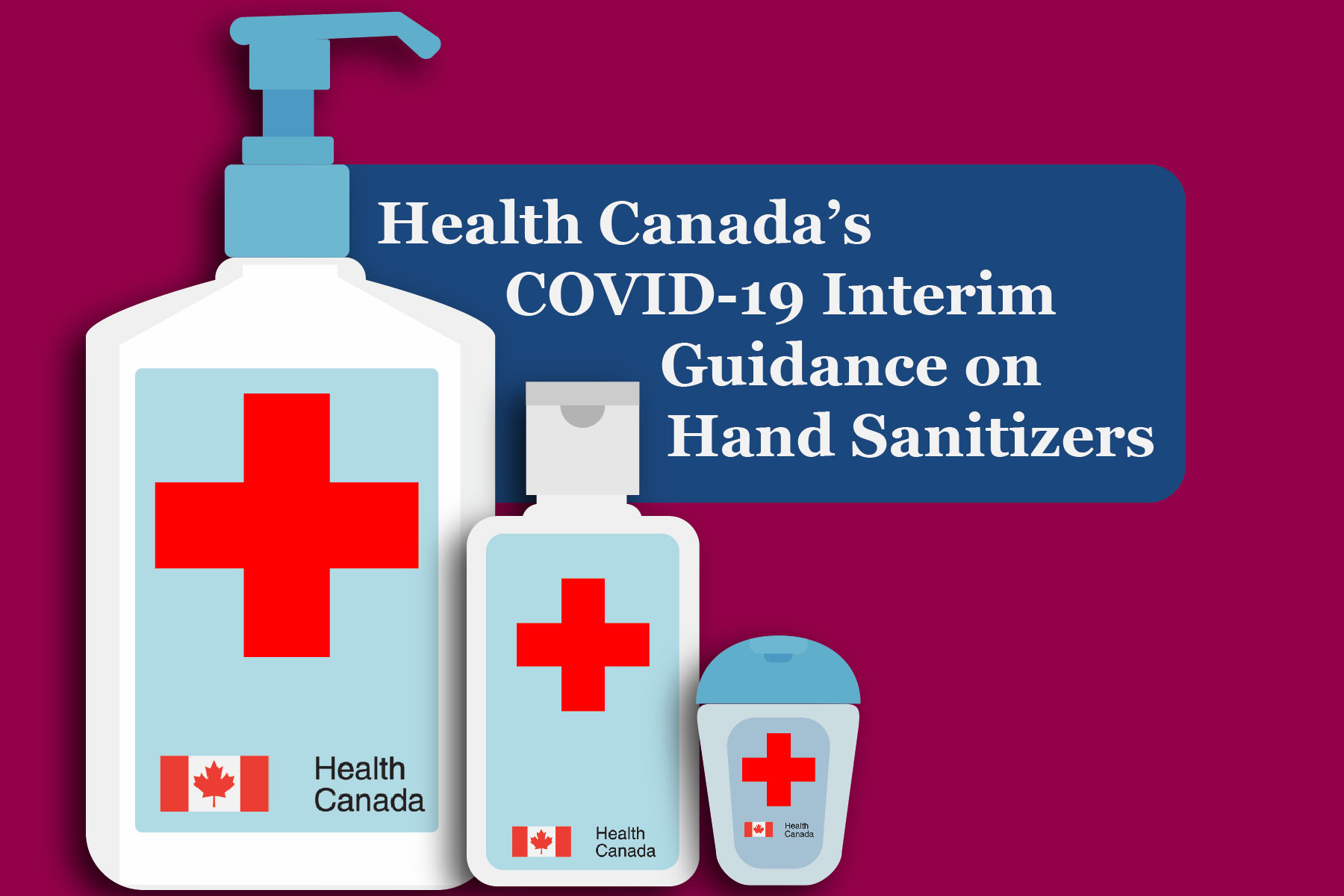Hand sanitizers in Canada are regulated by the Natural and Non-Prescription Health Products Directorate (NNHPD). When the pandemic was at its peak, NNHPD released an interim guidance for expedited approval of hand sanitizers to help mitigate supply shortages. The expedited process allowed for manufacturers to obtain a site license and a product license by implementing any of the following GMPs:1
- Part 3 of the NHPR
- Division 2 of the Food and Drug Regulations
- Guide to Food Safety, or
- Good Manufacturing Practices for Cosmetic Products
Companies obtaining a site license were also exempted from providing a Quality assurance report or evidence of GMP implementation.
On July 13, 2020, Health Canada rescinded its interim guidance for expedited approval of hand sanitizers and is now processing site license and product license application as per its regular service standards. This means that hand sanitizers must be manufactured, distributed, imported, labeled, and packaged in accordance with Part 3 of the Natural Health Products Regulations (SOR/2003-196).2
Companies obtaining site licenses will have to provide evidence of GMP compliance by either submitting a product report or by submitting certificates of compliance to the other internationally recognized standards. According to Health Canada, product licenses issued under the previous expedited licensing approach were not temporary and remain valid. However, manufacturers, packagers, labelers, and importers will require a valid site license once the regular supply of hand sanitizers stabilizes.2
Companies that received an interim site license under the previous expedited attestation process will be notified when the interim period ends (when the demand for alcohol-based hand sanitizers stabilizes). When notified, companies will have 60 days to stop manufacturing, importing, packaging, labeling or distributing alcohol-based hand sanitizers and apply for a valid site license to continue producing hand sanitizers until they receive a decision on their application.2
Are you planning to sell your hand sanitizer in Canada? Call us today at 248-987-4497 or email us at info@emmainternational.com for more information.
1Health Canada- ARCHIVED: Guide on Health Canada’s interim expedited licensing approach for the production and distribution of alcohol-based hand sanitizers retrieved on 08/12/2020 from https://www.canada.ca/en/health-canada/services/drugs-health-products/drug-products/applications-submissions/guidance-documents/covid-19-expediated-licensing-alcohol-hand-sanitizer/archive-01.html
2Health Canada (July 2020) Licensing approach to produce and distribute alcohol-based hand sanitizers: guidance document retrieved on 08/12/2020 from https://www.canada.ca/en/health-canada/services/drugs-health-products/drug-products/applications-submissions/guidance-documents/covid-19-expediated-licensing-alcohol-hand-sanitizer.html






